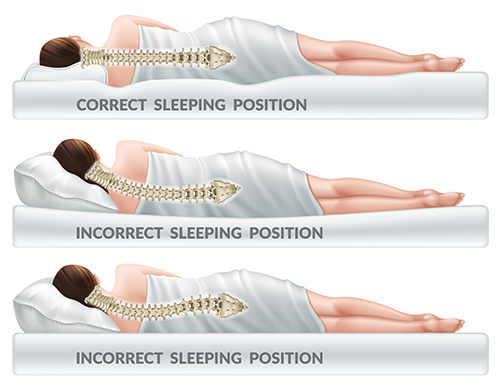The Many Manifestations of Multiple Sclerosis

Multiple Sclerosis is a disease that exposes itself in different ways in different people. No two people show exactly the same set of symptoms. Some people may just have a single symptom that later disappears for months or years. Some may suffer from a lot of symptoms that may also get worse within a few weeks or months. The symptoms may be steadily increasing over time for some people while for others there may be periodic relapses and remissions.
Why do the symptoms vary from person to person?
Multiple Sclerosis (MS) is a neurological disorder that affects different areas of the brain and spinal cord. The symptoms vary depending on the nerves affected. MS is actually an immune-mediated inflammatory disease. It causes damage to the protective myelin sheath that covers the nerves of the brain and spinal cord. Scar tissue replaces the myelin sheath in the affected region and the damage involves different areas at various points in time. The frequency and severity of symptoms depend on how deep and extreme the damage is. Hence, there is no defined pattern of presentation in MS.
What are the various possible symptoms?
Though MS has a range of manifestations, there are some common symptoms that people with the disease usually complain of.
Changes in vision
In many cases, visual problems are the first symptoms to be noticed. This occurs due to the optic nerve involvement. This nerve extends from the eyeball to the brain. When the nerve gets inflamed, it leads to a condition called optic neuritis. The result is a painful reduction or loss of vision in the affected eye. The pain is more pronounced during movements of the involved eyeball. Defective color vision can also occur. Another common visual symptom is double vision. This occurs due to a condition called nystagmus which means involuntary movement of the eyes.
Paresthesia or abnormal sensation
This is another common early symptom of MS. Numbness, tingling sensation, burning and itching are commonly reported by people with MS. These abnormal sensations can occur anywhere in the body depending on the nerve involved. Some common sites are the face, arms, fingers and legs.
Myelin sheath ensures faster conduction of nerve signals to the brain and spinal cord. Due to the damage caused to the myelin sheath and nerves, the signals are not properly conducted. This leads to numbness. When the nerve tract that transmits signals like touch, pain, and temperature is affected, some non-specific altered sensations like tingling, burning and itching occur. These are due to exaggerated responses or hypersensitivity to sensory stimuli like light touch. These abnormal sensations can also occur without any stimulus.
Muscle spasms and cramps
Involuntary stiffening of muscles (spasms) is common in people with MS. The cramps (pain) occur due to the spasm of muscles and they are usually felt in the legs. The spasticity makes the muscle movements difficult. Therefore, people need more energy to perform their day-to-day activities. This eventually leads to muscle weakness and tiredness. Fatigue is another common symptom that most people with MS complain of. It can occur all of a sudden without any history of exertion.
Loss of balance and co-ordination
The cerebellum of the brain helps maintain balance and co-ordination. The involvement of this part results in difficulty maintaining balance during walking and co-ordination problems like holding things with hands. In addition to this, fatigue and numbness make walking difficult. Tremors, dizziness, light headed feeling, slurred speech and vertigo are some other manifestations of cerebellar and brain stem involvement.
Sensitivity to heat
Another peculiar problem that is commonly seen in people with MS is their excessive sensitivity to heat. The symptoms of MS seem to be triggered or aggravated by an increase in body temperature or in warm surroundings.
Bladder and bowel disturbances
These symptoms are very common in people with MS. Bladder problems include frequent urination, nocturia (frequent urination at night times), an urge to urinate, incomplete emptying and urinary incontinence (leakage). Constipation is the usual bowel disturbance seen in people with MS. Diarrhea and bowel incontinence are less commonly seen.
Sexual dysfunction
Women with MS complain of dryness of vagina and men complain of difficulty in maintaining erection. Both men and women lack interest in sexual activity and find trouble in achieving orgasm. Sexual dysfunction is another common problem faced by most of the people with MS.
Cognitive dysfunction
Cognitive difficulties are seen in about half of the people with MS. Memory problems and attention difficulties are the common cognitive problems. Some people have problems in language comprehension and usage. People also face difficulties in decision-making, reasoning, planning, and execution of scheduled activities.
Emotional changes
Depression is common in people with MS. The actual reason for depression is not very clear. It could be due to the damage caused to the nerves or simply the other distressing symptoms of MS. Anxiety, irritability and mood swings are not unusual. Some people with MS can exhibit a condition called pseudobulbar affect. This condition is characterized by rapid and uncontrollable mood swings with episodes of laughing and crying irrelevant to the existing situations.
Other symptoms
Seizures, swallowing difficulties and breathing problems are other non-specific symptoms by which Multiple Sclerosis can present itself.
As it is obvious, most of the manifestations of Multiple Sclerosis are subjective – they are felt by the person who suffers from the disease and are not visible to others. The myriad manifestations and their unpredictable pattern of presentation make the diagnosis of Multiple Sclerosis difficult.
Furthermore, the symptoms of the disease are not specific to it – they can occur in other conditions also. It is just as difficult to attribute these symptoms to MS as it is to diagnose the condition.






